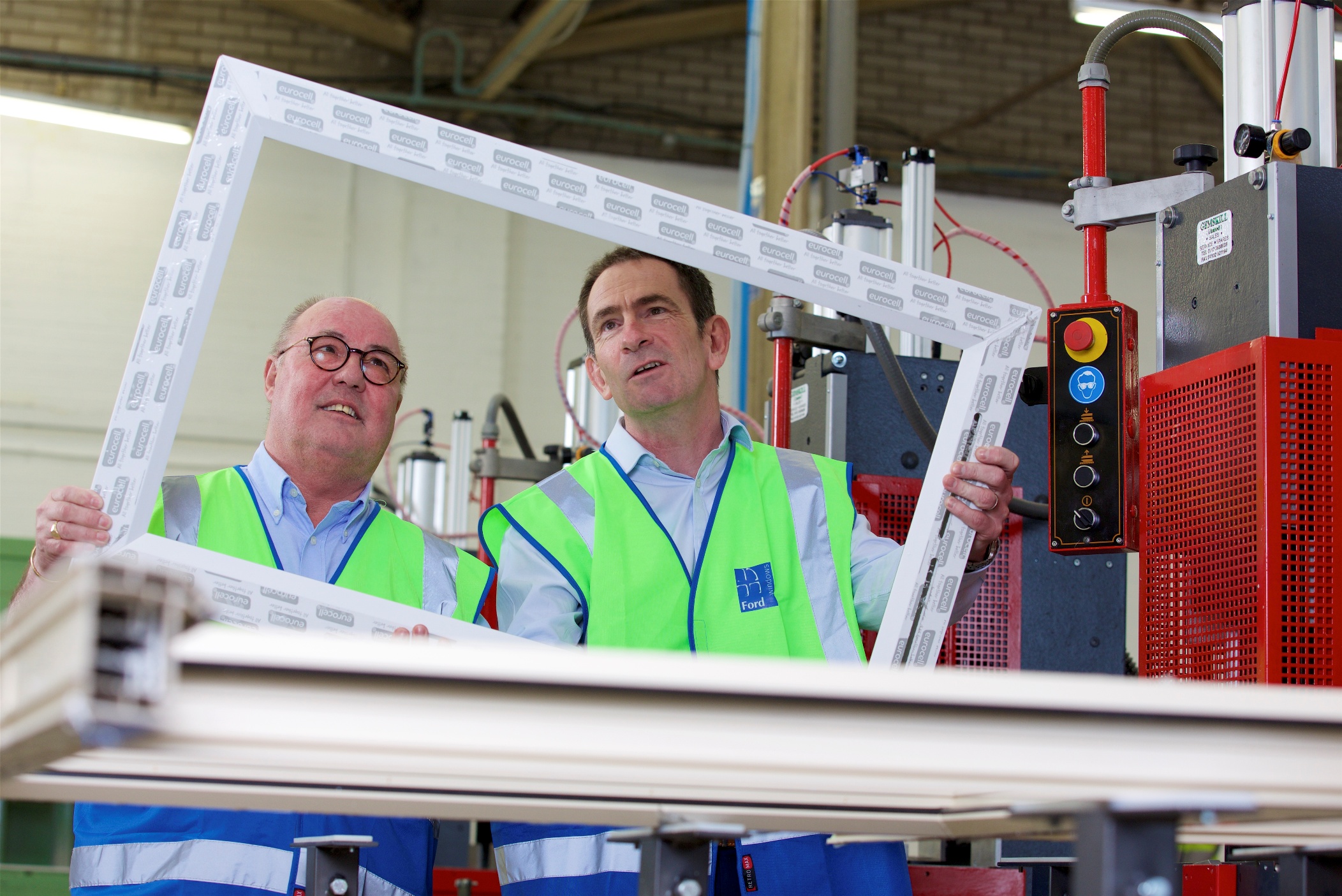Competition is intense and margins are tight but there is still room at the top as shown by Ford Windows, the Sheffield-based fabricator and installer.
When it comes to mass production and success in the mass market, there are few names stronger than the Ford Motor Company – and similarly, in the fenestration sector, few stronger than Sheffield-based Ford Windows. The company continues to go from strength to strength, qualifying as a member of the Yorkshire Fastest 50 – the comprehensive list of Yorkshire’s fastest-growing companies – two years on the trot, in both 2015 and 2016. In fact, turnover virtually doubled between 2013 and 2014 and Ford has invested significantly in plant and expanded its operations to comfortably accommodate such rapid growth.
Ford Windows currently produces 2,000 frames a week from its premises in Catley Road, Darnall; yet has recently taken on an extra 1300m2 factory in nearby Tinsley. Three years ago it also expanded into the Scottish market, recruiting staff and leasing factory space in East Kilbride, in a successful move to capitalise on the vibrant fenestration market there.
“We dipped our toe in the water there with a three year lease and broke even in the first year. We made a small profit in the second year so in the third we’ve taken on the premises next door, doubling the size of the factory,” says managing director Philip Shackley. “For us fenestration is booming both in Scotland and England and house builders really appreciate that we supply and fit everything – we’re a one-stop shop.”
And this, Philip believes, is key to the company’s success as it numbers some of the UK’s top house builders among its clients – Barratt Development, Persimmon, and Taylor Wimpey to name just three. “We believe in adding value and reacting quickly to what the customer wants,” Philip says. “If there is a problem then we aim to get it sorted in 24 hours.”
The company also requires the same agility from its suppliers, which is one reason why it values its close, 13 year-old relationship with Eurocell. “It has supported us every step of the way,” financial director Julian Thorpe comments. “It’s a very innovative business and we have a healthy relationship so that on the rare occasions we might have an issue, it is quick to react and we have access to senior people.”
The Scottish operations output is, while relatively small, now at the same as Ford Windows was when Philip joined the business in 2003: 300 frames per week. At that point Philip was production manager, having switched from a career in personnel when he found himself being forced to take on the role to introduce new working practices while working with another company. Yet that experience in what is now dubbed ‘human resources’ has not been forgotten – his style as MD is very much hands on and informal.
“I want to lead by example. If I’m enthusiastic about what we do then the staff will be too. I get up in the morning wanting to come to work and I want everyone to feel the same,” he says.
His ‘open door’ policy is very literal – with his office door firmly wedged right open – and he is a big advocate of ‘walking the floor’ as production starts in the morning, meeting everyone on first name terms. The company also places a lot of stock on building the team by organising corporate events such as racing, bowling or golf days and upmarket evening functions for its staff through the year.
So it is no surprise, then, that very few people leave the company but this loyalty is repaid: there’s no downsizing when times are tough or when investment in new machinery make impact upon staff numbers. “We’re very proud of keeping people in employment,” Philip states. So, when the downturn of 2008 hit, no one was made redundant any more than when glass production was outsourced.
The company is now investing even more in production, after Philip and Julian acquired 50% of the business from the original owners, Roger Sidebotham and Dennis Taylor in May last year. In line with the company philosophy of staff wellbeing, their first action was to rip out the old staff canteen and put in all new white goods and a laminate floor. And now the management is spending the best part of £1 million in introducing new IT systems and, most recently, a top-of-the-range Stuga ZX4 sawing and machining centre.
The computer-controlled machine can produce an extra 800 to 1000 windows per week but needs only two operators compared to the 10 required to man existing machines. Initially it will be dedicated to producing Eurocell Eurologik 70mm windows in response to demand from house builders for improved U-values, which the six-chambered design delivers with ease as it is one of the first windows to achieve the UK’s highest possible energy rating: A++.
Importantly, the Stuga ZX4 can be configured to manufacture other Eurocell windows as housebuilders turn to windows for differentiation in a highly competitive market, where models such as Modus will come to the fore. Modus is specifically designed to meet the growing demand for premium PVC-U windows from discerning homebuyers who want distinctive properties that present a traditional appearance while meeting modern performance standards.
Although this investment is considerable it is, as Julian points out, all part of the company’s plan for steady growth and is easily within its means. “The investment might be a new step in terms of the pace and size of development but we haven’t had to use external sources to fund this investment so we’re very secure financially,” he says.
So, with a strong following among the nation’s house builders, a committed workforce and sound finances, Ford Windows is set to continue its record of rapid growth – perhaps outstripping its namesake.



















